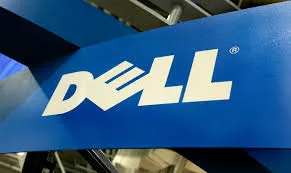As AI Demand Booms, Dell Raises Its Estimates for the Next Four Years
Dell Technologies Inc. significantly raised its long-term outlook, nearly doubling its growth projections for both revenue and profit over the next two years, driven by surging demand for artificial intelligence products. The company now expects that AI momentum will support higher growth at least through fiscal 2030.
At an investor event in New York on Tuesday, Dell introduced a new “long-term financial framework,” projecting annual sales growth between 7% and 9% over the next four years. Adjusted earnings per share (EPS) are expected to rise by 15% or more each year. That’s a notable jump from Dell’s 2023 guidance, which anticipated 3% to 4% revenue growth and at least an 8% increase in adjusted EPS. Chief Operating Officer Jeff Clarke shared these updated targets in an interview ahead of the event, emphasizing how dramatically the AI landscape has expanded.
“We were all wrong about how big we thought the AI market would be two years ago and it’s turned out to be much larger,” Clarke said.
infrastructure business has been a major beneficiary of AI-related demand, with customers such as CoreWeave Inc. and Elon Musk’s x.AI ordering its high-performance servers. The company has also secured contracts with organizations like the U.S. Department of Energy and Abu Dhabi’s AI firm G42. Meanwhile, Dell’s traditional servers and PC business are expected to grow at a more moderate “low- to mid-single-digit” pace, Clarke added.
Although investors have celebrated Dell’s booming AI server sales, the rapid expansion has come at a cost. Building and deploying servers with the latest AI chips has weighed on profit margins. Clarke acknowledged that the AI server division is operating with “mid-single-digit margins,” but noted that the rate remains healthy and contributes positively to overall earnings.
He also sees potential to lift profitability by expanding sales to large enterprise clients and encouraging AI customers to purchase higher-margin Dell products like storage and networking solutions.
In the second quarter, Dell’s infrastructure unit which includes servers and networking equipment posted an operating margin of 8.8%, slightly below analyst expectations. During the same period, Dell recorded $5.6 billion in AI server orders, down from $12.1 billion in the prior quarter. The company shipped $8.2 billion worth of AI servers and closed the quarter with a backlog totaling $11.7 billion.
The strength of Dell’s infrastructure business has fueled a 26% rally in its shares this year through Monday’s close, reflecting investor optimism about the company’s positioning in the AI era.
Clarke, who recently took over leadership of Dell’s PC division in July, also addressed the company’s efforts to recover market share lost to rivals HP Inc. and Lenovo Group Ltd. following the pandemic.
While Dell has maintained a strong presence in high-end PCs for corporate clients and premium consumers holding roughly a quarter of that market it has fallen behind in the more price-sensitive low- and mid-range segments.
To regain momentum, Dell plans to roll out new products aimed at revitalizing growth and improving profitability in its consumer PC business. Clarke said the company also intends to strengthen its position in the commercial sector, particularly within the education market and in rapidly growing international regions.
“We’re not satisfied with where we are,” Clarke said. “The PC business is all about scale you can’t compete in it without a strong consumer presence. And in the consumer space, you have to play to win.”
In addition to its growth strategy, Dell reaffirmed its commitment to shareholder returns. The company announced plans to continue increasing its quarterly dividend by at least 10% annually through fiscal 2030. Dell also reiterated its existing financial guidance for the current quarter and fiscal year ending January 2026, underscoring confidence in its long-term strategy.
With AI now a core driver of its growth trajectory, Dell is positioning itself to capitalize on the technology’s expanding footprint from enterprise infrastructure to edge computing. While short-term margin pressures remain, the company’s updated outlook suggests that it sees a clear runway for sustained growth and value creation well into the next decade.

Subscribe to our newsletter!
As a leading independent research provider, TradeAlgo keeps you connected from anywhere.








